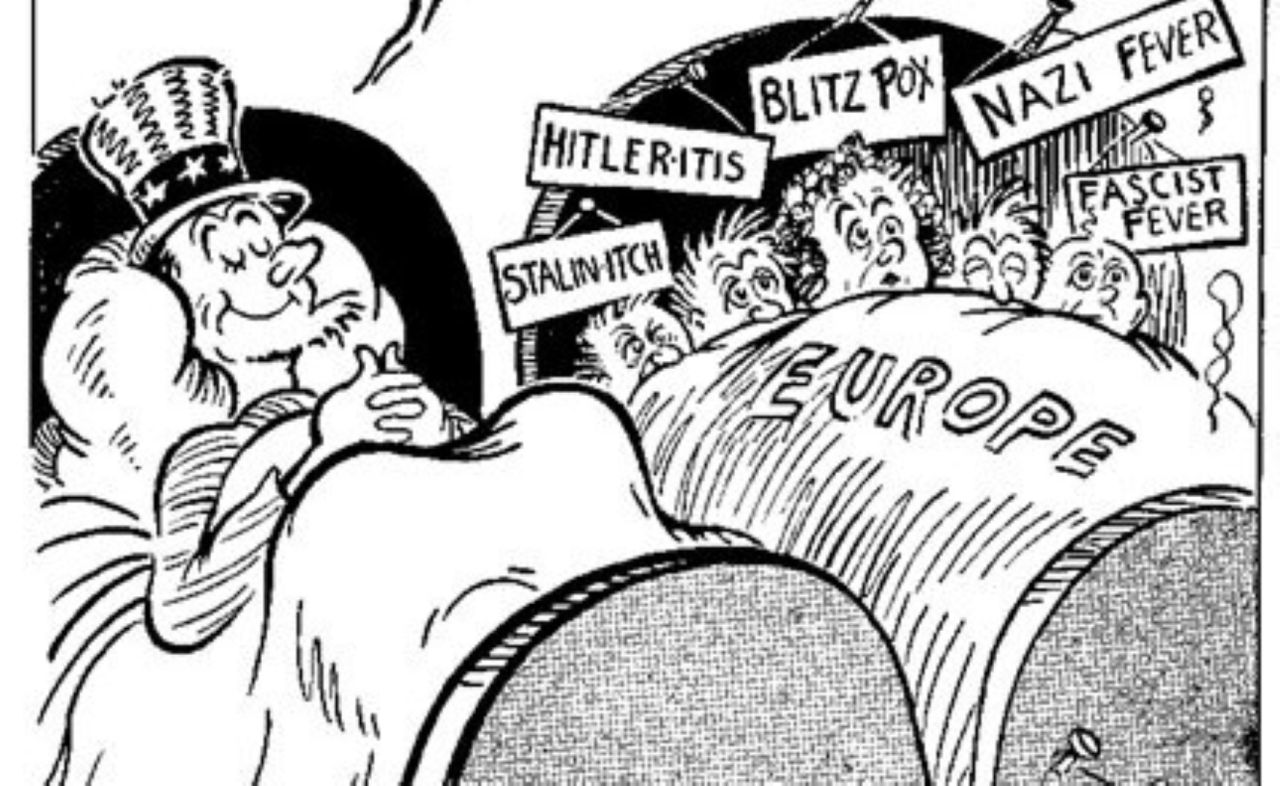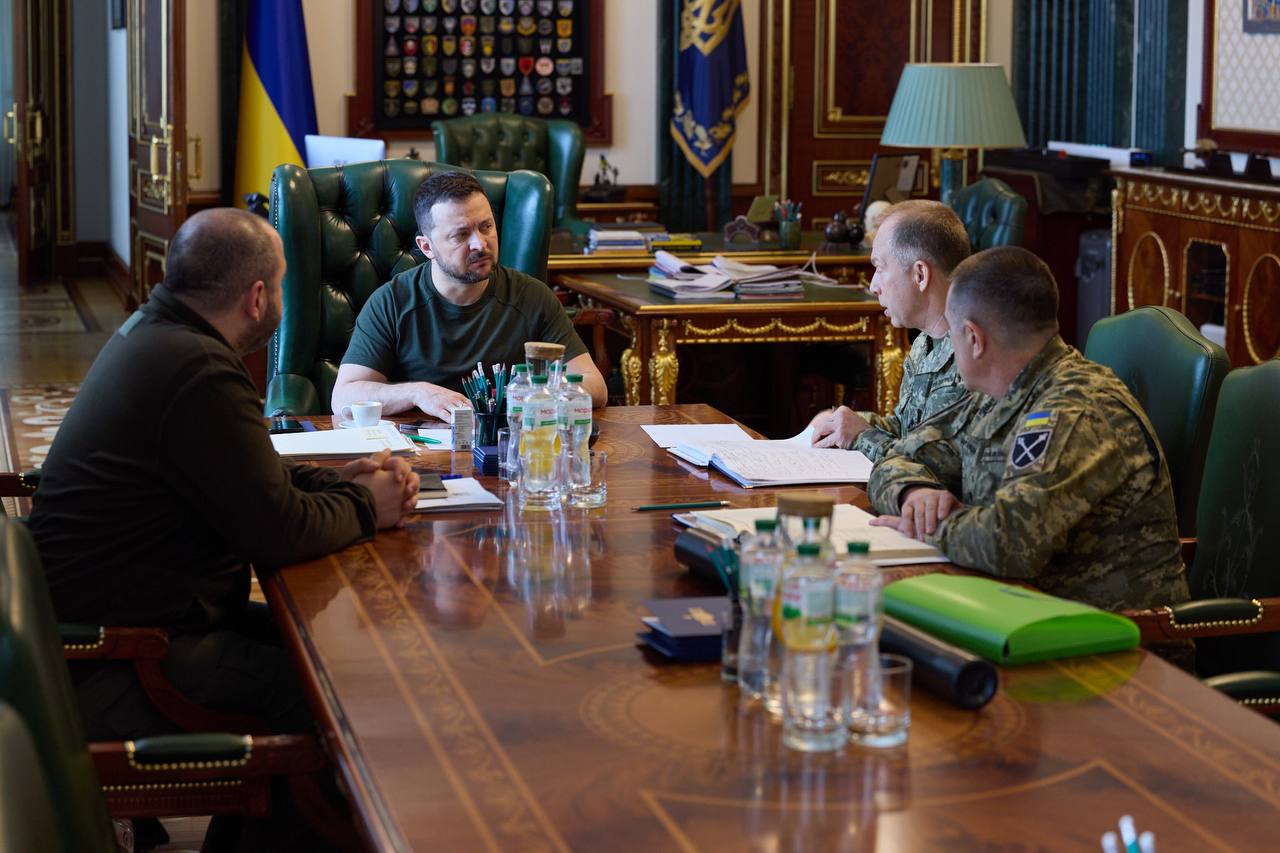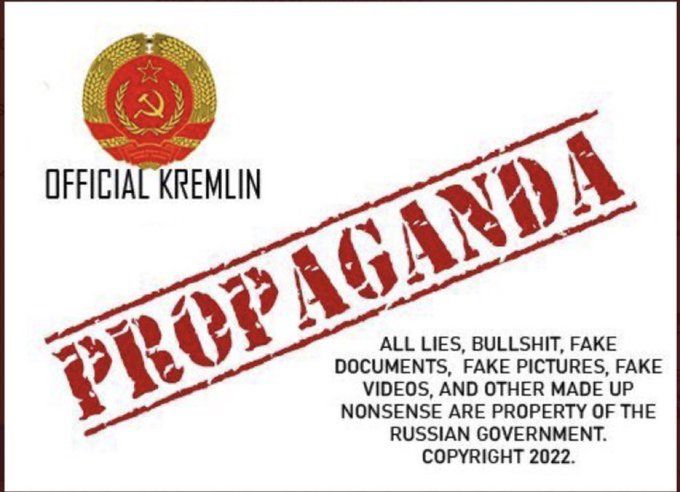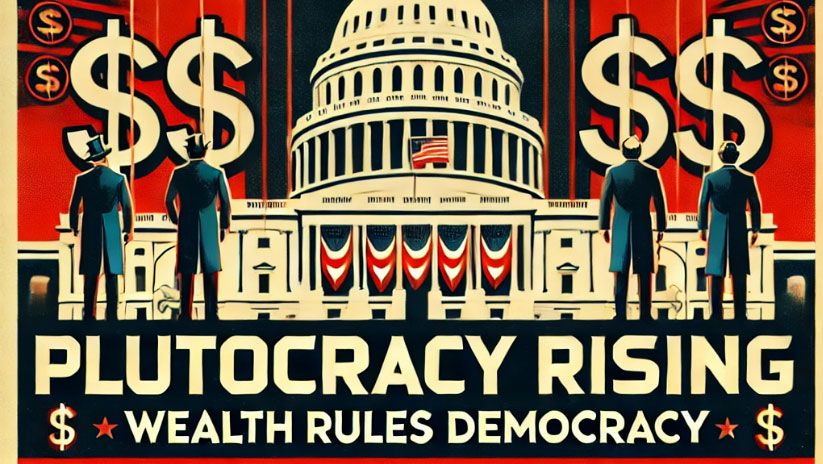Former U.S. Secretary of State Condoleezza Rice offered her insights on the current global political climate, noting that the international system established post-World War II faces significant challenges. “The biggest challenge to this international order that we are experiencing is the rise of what I call the four horsemen of the apocalypse: populism, nativism, isolationism and protectionism,” Rice said.
This article specifically focuses on isolationism, which is defined as a policy framework advocating for a nation to protect its interests by keeping a deliberate distance from the affairs of other countries. This strategy is not new; it has historical precedents, such as Japan's sakoku policy during the Edo period (1603-1868), where the nation isolated itself under the guise of self-preservation, led by a dictatorial regime. 
Through this lens, we will explore how Russia, under Putin, exploits the current wave of isolationism in the U.S. and globally. Today, not only many Americans think that the war in Ukraine has nothing to do with them, but the global reaction has shifted toward “neutrality.”
This strategic manipulation serves to advance Russia's global influence by fostering divisions and undermining the collective security measures that have historically countered its expansionist ambitions.
UK – From Splendid Isolation to BREXIT
In the 19th century, Britain stood apart with a foreign policy famously characterized by "splendid isolation," maintaining no permanent alliances and staying diplomatically aloof. This term, coined 124 years ago, reflected the stance of Britain under Conservative governance, aiming to steer clear of entanglements with other European powers. This approach was driven by several factors:
· Geographical advantage - Britain's island status allowed it to remain detached from continental disputes.
· Naval supremacy - With its formidable navy, Britain protected its shores and vast overseas territories.
· Economic motivations - As a pioneer of the industrial revolution, Britain had extensive global trade interests it sought to safeguard.
Influenced by comparable dynamics, such as a media celebrating Anglo-Saxon dominance and viewing European engagement as a threat to national identity, contemporary Conservatives have followed a similar path.
Historically, Conservative leaders would spar with all of Britain's potential allies, even risking conflict with the United States over minor disputes.
The pursuit of economic isolationism intensified in 1902 when Conservative leader Joe Chamberlain advocated for economic protectionism within the British Empire through trade preferences. The 2016 vote for Brexit marked Britain's choice for independence, yet it led to a state of isolation. The debate over Brexit hinged on differing historical narratives: the notion of "British splendid isolation" versus a tradition of British political engagement. Yet, both sides emphasized the notion of British exceptionalism. The debate encompassed material and conceptual borders, with Brexiters seeking to reclaim 'English democracy' outside Europe, and Remainers aiming to redefine Britain's role within it. This discourse evolved around three main themes:
· A rebellion against globalization;
· A generational conflict, notably between baby-boomers and younger demographics;
· Brexit as a manifestation of English identity, especially prevalent in economically challenged regions and the suburban middle classes of historical urban centers.
Brexit thus emerged as a populist movement, framing itself as a stand against multiculturalism and in support of a renewed English nationalism.
Russia’s involvement in BREXIT
Russia has been accused of using disinformation campaigns to exacerbate societal rifts within the UK, including those laid bare by the Brexit debate. At the core of the much-anticipated "Russia Report," a document that arrived nine months later than expected and spans 55 pages, is the investigation into Russia's harmful meddling in UK politics. This report, crafted by an independent panel comprising nine MPs from various political factions, including the incumbent Conservatives, sparked controversy due to attempts by Boris Johnson's administration to delay its release.
The findings of the report are stark, indicating that both the UK government and its intelligence and security sectors have not fully grasped or responded adequately to the threat posed by Russia, and are currently struggling to adapt. The document highlights the pervasive nature of Russian influence within the UK, labeling it as a concerning norm and identifying the UK as a prime target for Russian disinformation campaigns.
Although the report stops short of accusing Russia of direct interference in the 2016 Brexit referendum's voting process—a system that relies entirely on paper ballots and is generally considered secure—it does not rule out the impact of Russian information campaigns. Through channels such as social media and Russian state-funded media outlets like Sputnik and RT, along with support for key UK political figures, these efforts could have significantly swayed public opinion.
The report particularly criticizes the UK Government for its apparent lack of interest in investigating the extent of Russian influence on the Brexit vote. This stance is especially surprising given the government's acknowledgment of Russian meddling in the 2014 Scottish referendum, marking Russia's first direct intervention in a Western democratic process, and in the general election of December 2019 (CSIS, 2020).
The Brexit campaign's populist orientation, with its focus on anti-establishment and anti-globalist views, reflects Russia's backing for similar movements throughout Europe. By supporting these beliefs, Russia hopes to destabilize the liberal democratic system and create a more favorable environment for its own political maneuvers.
Russia seeks to exploit the UK's post-Brexit weaknesses, hoping to reduce its global influence and break the unity of Western allies.
The US case – From Historical Roots to Modern Realities
The term “isolationism” began to be widely used in the US during the 1930s, and from the outset, it carried distinctly negative connotations. After gaining independence, the US in the late 18th and early 19th centuries embraced a policy of relative isolationism, aiming not to completely avoid the world but to steer clear of “entangling alliances,” as Thomas Jefferson put it. The effects were disastrous.

Isolationists advocated non-involvement in European and Asian conflicts and non-entanglement in international politics.
Proponents of isolationism advocated for a hands-off approach to foreign conflicts, particularly those in Europe and Asia, and resisted deep involvement in international politics. This perspective found its roots in the foundational advice of President George Washington, who, in his Farewell Address, warned against entanglement in European wars and politics. For much of the 19th century, the geographic buffer provided by the Atlantic and Pacific Oceans allowed the US to enjoy a degree of security and autonomy, remaining relatively insulated from the complexities of Old World strife. The isolationist movement attracted a wide array of supporters, from progressives to conservatives and from business leaders to peace advocates. Due to the lack of a unified internationalist counter-movement, isolationist ideology often prevailed in national policy and discourse.
Despite its stance of non-involvement, the US was not immune to the global impact of World War I. Although initially declaring neutrality after the war broke out in Europe in July 1914, the US found itself indirectly involved through the provision of weapons, ammunition, and equipment to France and Great Britain. The American public and its leaders were deeply divided over the nation's role in what was seen primarily as a European conflict. President Woodrow Wilson's 1916 reelection campaign famously capitalized on this sentiment with the slogan "He kept us out of the war."
However, in 1917, following internal political revolutions in Russia, the outlook for the Allies darkened, and the USA entered the war. This was proof that neutrality hadn’t worked.

Despite efforts towards neutrality and isolationism, the US got involved in the war. Strong economic ties with the Allies and the sinking of the British ship Lusitania by a German submarine (1915), which had American citizens on board, shifted public opinion against Germany.
The United States' involvement in World War I exposed the complexities of its international position, demonstrating how economic incentives and geopolitical realities might force a shift toward interventionism. This time also anticipated the difficulties of sustaining isolationism in the face of global problems. The approach of avoiding international entanglements, which had been dominant until the Spanish-American War in 1898, started to demonstrate its limits, thereby contributing to the economic instability of the Great Depression and laying the groundwork for the difficulties of World War II in the twentieth century. This historical trajectory demonstrates the enormous influence of isolationist policies on both local and international levels, highlighting the interconnectedness of global events and the frequently unanticipated repercussions of nationalistic policies.

This image taken in the US during the Great Depression (1929-1939) mirrors the daily lives of people living in USSR-controlled states.
![Cum arăta ”raiul” comunist în perioada sărbătorilor de iarnă. Oamenii stăteau la cozi pentru o franzelă, iar uleiul se dădea pe cartelă [FOTO] - Observatorul Prahovean](file:////Users/apple/Library/Group%20Containers/UBF8T346G9.Office/TemporaryItems/msohtmlclip/clip_image005.jpg)
Picture taken in Romania during the communist rule. People were standing in lines for a loaf of bread, and oil was given out on ration cards.
The isolationist era in the US, mirrored by similar periods of withdrawal in other nations, such as the stringent control and rationing measures seen in the countries under communist rule, underscores the broader themes of scarcity, control, and the pursuit of autonomy in the face of global interdependence.
Currently, Donald Trump managed to establish and crystallize the United States' position of comprehensive global isolation.
As Donald Trump solidifies his frontrunner status for the Republican presidential nomination, concerns are mounting among U.S. allies about a potential American shift toward isolationism. This trend reflects a voter base that is predominantly concerned with domestic issues. This was evident in Iowa's caucus results, where Donald Trump's victory highlighted that foreign policy was the primary concern for only a small fraction of participants, as per Edison Research's poll. Economic issues and immigration were far more significant to voters, aligning with national polling trends that show Americans prioritizing domestic issues over foreign conflicts and immigration over the past decade.
This inward turn has been especially pronounced within the Republican Party in recent years, with Trump and other party leaders critiquing U.S. support for Ukraine against Russia's invasion in 2022 and cautioning against the risks of global entanglement. The skepticism extends to the U.S.'s defense commitments and economic relations.
There's also concern among Republicans in Congress about supporting foreign allies, with resistance to funding requests for Ukraine, Israel, and Taiwan amidst rising tensions with China. This has led to legislative debates and has been a point of contention between the Republican-controlled House of Representatives and the Democratic-majority Senate.
Trump's approach has sparked debates about the U.S.'s role in the world and its alliances, once considered stable pillars of foreign policy. Public opinion reflects this shift, with a significant portion of Republicans now favoring a more isolationist stance, a sentiment not seen in decades.
Should Trump win a second term, it's anticipated that he will appoint loyalists across key departments, enabling a more pronounced shift toward isolationist policies. This stance has drawn criticism and concern from international leaders, including remarks from the European Union's Thierry Breton about Trump's past threats to withdraw from NATO and his statements on the U.S.'s unwillingness to assist Europe in the event of an attack.
The skepticism extends to military aid, with a divided opinion among Republicans on providing support to Ukraine and Israel. The potential for another Trump presidency raises concerns among close U.S. allies, but boosts Russia's strategic interests, helping it exploit these divisions and sentiments to its advantage.
Totalitarian actors taking advantage of isolationism
Russia strategically capitalizes on the trend of isolationism, particularly as evidenced in UK’s BREXIT and the United States under the Trump administration, to further its global influence and undermine Western alliances.
Russia has historically viewed NATO as a threat to its strategic interests. The skepticism and potential withdrawal of the US from NATO, as hinted at during Trump's presidency, presents an opportunity for Russia to destabilize the Western military alliance, creating fissures within Europe and diminishing collective defense capabilities against Russian aggression.
It utilizes disinformation campaigns and cyber operations to exacerbate political and social divides within and between countries, particularly those in the West. The isolationist tendencies, coupled with internal divisions, make societies more susceptible to such campaigns, weakening the coherence and unity necessary to counteract Russian influence operations effectively.
As the U.S. and other Western countries adopt more isolationist policies, their involvement in international conflicts and crisis zones diminishes. Russia seizes these vacuums of power to expand its influence, as seen in Syria and Libya, positioning itself as a key player in regional politics and security.
Isolationism often leads to protectionism and trade conflicts, which Russia can exploit by offering alternative partnerships and energy resources, especially to European countries. By stepping in as an economic partner, Russia aims to build dependencies and leverage these relationships to achieve geopolitical gains. With a reduced U.S. presence on the global stage, Russia finds more space to assert its presence and proposals in international forums and negotiations. This allows Russia to promote its interests and narrative, contrary to Western values and policies, with less opposition.
The retreat of the U.S. from its role as a promoter of democracy and human rights leaves a void that Russia fills with its model of authoritarian governance. By supporting like-minded regimes and undermining democratic movements, Russia aims to create a global environment more hospitable to its interests and governance style. As Western countries turn inward, Russia seeks to strengthen ties with other non-Western powers (especially China, part of the Axis of Evil), to create a counterweight to U.S. influence. Alliances like BRICS are based on mutual interests in reshaping the international order to reduce Western dominance.
The alarming growth of isolationism represents a disturbing shift away from democratic values, human rights, and global unity. As two countries that have long been strongholds of these principles—the US and the UK—turn inward, the international community is confronted with the difficult task of dealing with a world that is becoming more divided.
Finally, there are serious dangers associated with the return of isolationism, whether it be a defensive stance against globalization or a deliberate political stance. It damages the foundation of international coalitions, gives power to dictatorships like Russia and the Axis of Evil, and erodes the worldwide dedication to human rights and democracy.
Given what had happened and what is occurring today, we must revive our commitment to internationalism, favoring unity and cooperation above isolation and disengagement. That is the only way we can confront today's complex issues as a unified front and achieve the future stability that each nation deserves.
References:
https://www.csis.org/blogs/brexit-bits-bobs-and-blogs/did-russia-influence-brexit
https://link.springer.com/chapter/10.1057/9781137503268_11#citeas
https://www.oxfordreference.com/display/10.1093/oi/authority.20110803100524374
https://www.ucpress.edu/blog/21661/the-uk-from-empire-to-isolationism/
https://scholarworks.umass.edu/cgi/viewcontent.cgi?article=2918&context=dissertations_1
https://www.theatlantic.com/international/archive/2020/10/donald-trump-foreign-policy-america-first/616872/
https://www.governing.com/context/americas-long-complicated-history-of-isolationism
https://samoaglobalnews.com/18-august-1914-us-proclamation-of-neutrality/
















